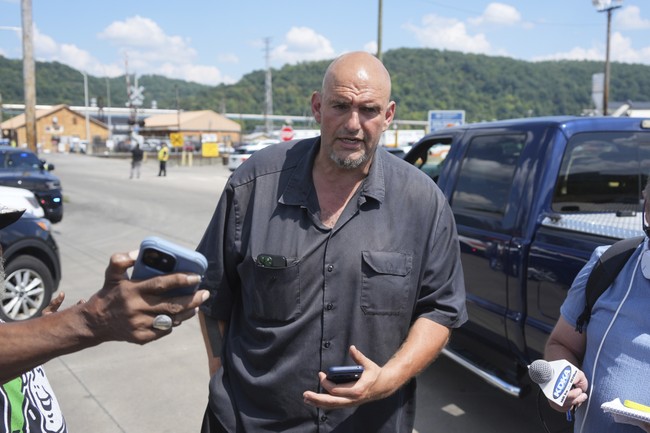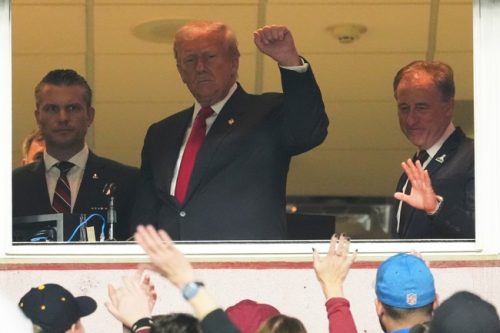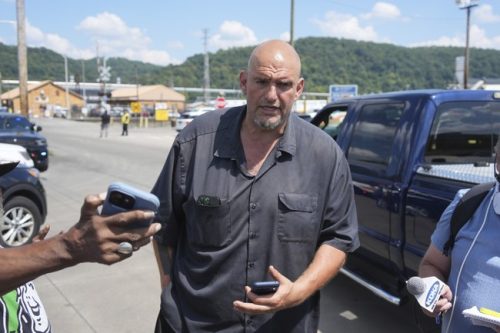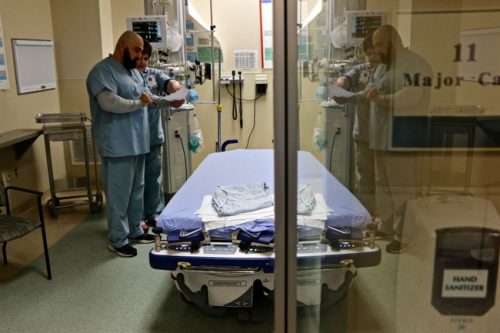Sen. John Fetterman is recuperating at home after a fall that required 20 stitches following a ventricular fibrillation episode during a morning walk, and his medical incident has intersected with ongoing political fights over a recent government shutdown.
Sen. John Fetterman, D-PA, posted that he is at home recovering after a fall that followed a cardiac event during a morning walk earlier this week. Doctors treated facial wounds that required 20 stitches, and paramedics took him to a Pittsburgh hospital for evaluation and care. The report confirms the episode was ventricular fibrillation, a serious heart rhythm disturbance that demands careful follow-up. His team says he is resting and under medical supervision as he recovers from the injury and the underlying cardiac event.
Medical details are limited publicly, but ventricular fibrillation is a life-threatening arrhythmia that can cause sudden collapse and requires urgent treatment. That Fetterman fell and needed multiple stitches highlights both the physical consequences and the potential for more complex recovery needs ahead. Family and staff have emphasized his stability while warning that recovery timelines can be unpredictable after cardiac episodes. Colleagues in the Senate have expressed concern and wished him well while the situation remains under observation.
Politically, Fetterman has been in the spotlight not just for his health but for his role during a recent funding battle that produced the nation’s longest federal government shutdown. He was among a handful of Democratic senators who voted to reopen the government, breaking with other members of his party. Critics on the right point to that vote as evidence some Democrats understand the damage caused by the shutdown, even if party leaders played different politics. That vote created a rift with party operatives who had pushed a harder line in negotiations.
20 stitches later and a full recovery, I’m back home with @giselefetterman and the kids.
I’m overwhelmed + profoundly grateful for all the well-wishes.
Truly.
Grateful for @UPMC for the incredible medical care that put me back together.
THANK YOU SO MUCH.
See you back in DC. pic.twitter.com/j81LXZGLBx
— U.S. Senator John Fetterman (@SenFettermanPA) November 15, 2025
The closure, labeled by some as the “Schumer Shutdown,” had real consequences: food benefits to 42 million people were affected and federal workers saw pay interruptions during the stand-off. Those figures matter in any sober assessment of the shutdown’s human cost, and Republicans continue to use them to argue that Democratic leadership prioritized politics over people. Fetterman’s vote to end the shutdown separated him from many in his caucus, and that split has become a talking point for critics across the aisle. For voters watching from the middle, actions that restore benefits and pay tend to register more clearly than partisan messaging.
Despite his vote, Fetterman has faced attacks from within his own party, an awkward dynamic that underscores broader tensions in the Senate. Party leaders who backed the shutdown moves have not hesitated to go after members who stepped away from the caucus line. That behavior has fueled complaints from independents and swing voters who saw the shutdown as needless theater. Republicans are leveraging those divisions to argue for accountability and practical governance over intra-party theatrics.
The medical episode adds a layer of vulnerability to an already contentious political moment. When a senator faces health challenges, constituents and colleagues want transparency about prognosis and capacity to serve. Republicans emphasize the need for clear, timely updates so voters can assess representation and leadership in Washington. At the same time, party critics note that health problems do not change record votes or political decisions that affected millions.
Fetterman’s situation is also a reminder that public officials operate under intense scrutiny, with every vote and every health update examined for political meaning. For Republicans, his vote to end the shutdown is useful evidence that some Democrats recognized the harm done while party leadership dug in. That contrast is being used to press the argument that responsible governance should come before party loyalty. Political narratives now compete with medical facts, and both will shape perceptions in the weeks ahead.
Meanwhile, Senate operations continue, and colleagues have had to balance concern for a fellow lawmaker with pressing legislative business. Staffers and leadership must plan for short-term coverage and possible adjustments depending on recovery progress. The procedural reality of the Senate means even temporary absences have ripple effects in tight margins and major negotiations. That practical side of governance is why many on the right argue for straightforward health disclosures and contingency planning.
As Fetterman recovers, the debate over the shutdown and its fallout will not disappear. Republicans will continue to point to the 42 million people affected and the sudden interruption of pay for federal employees as proof that leadership miscalculated. Those numbers drive the political argument that the public prefers results over spectacle. In the near term, voters will watch both the senator’s health updates and the ongoing policy fights that shaped his recent votes.






